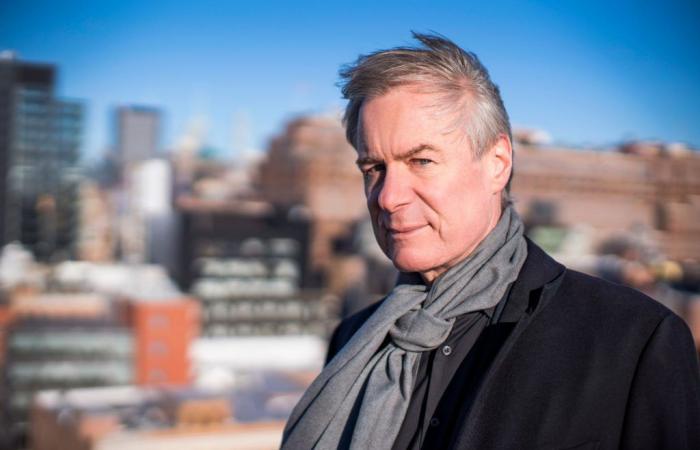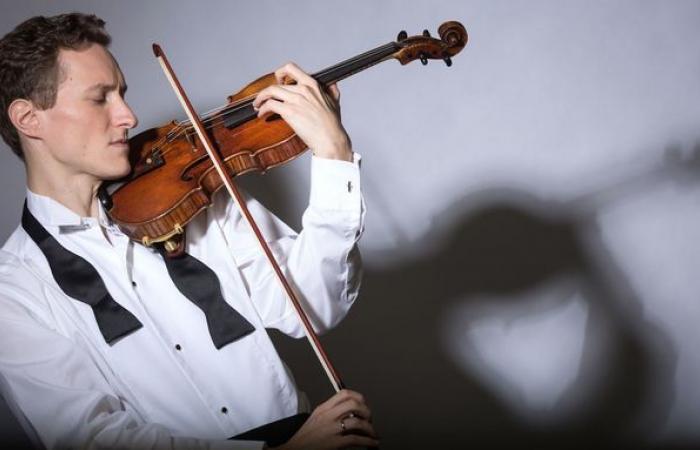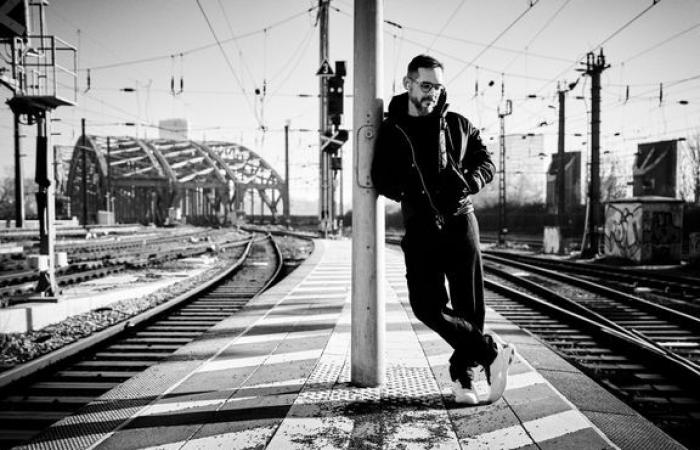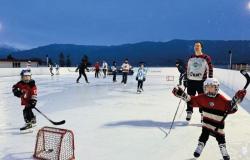Bees, ants or corals form exceptional communities of animals of one species. Thanks to mutual synergy and perfect organization, biologists refer to them as superorganisms, in which an individual can have a specialized function, but cannot survive on its own.
However, intense concentration on activity and at the same time cooperation calculated to the hundredth of a second are not the domain of superorganisms only. Symphony orchestras similarly progress each rehearsal. The new composition, which will be performed at this year’s Prague Spring festival, is also based on this parallel.
With the final concert, which will take place on June 3 in the Municipal House, the organizers will sign up for the ongoing Year of Czech Music. The name covers a cultural event commemorating important personalities’ anniversaries every ten years. That evening will include works by Leoš Janáček, Antonín Dvořák and Josef Suk, alongside which the Czech Philharmonic will present the European premiere of Superorganisms by contemporary composer Miroslav Srnka.
Miroslav Srnka is probably the most famous contemporary Czech composer. | Photo: Kaupo Kikkas
“Superorganisms are composed almost entirely of virtuoso solo voices of a completely individually divided orchestra, yet there are no solos in the entire composition and the individual voices are difficult to distinguish from each other. The music in them only arises from the ripples of common energy. Like a school of fish or birds, where we cannot follow one being, but we can observe the movement of the whole for hours,” says the author.
He composed for the joint commission of five world orchestras. Alongside the Berlin Philharmonic, the Los Angeles Philharmonic, the Orchester de Paris and the Czech Philharmonic, it was Tokyo’s NHK Symphony Orchestra that performed the work first last year. “It was my first experience with this ensemble, a true leader among Asian orchestras,” the composer recalls in June 2023. “I had a lot of stage fright and it didn’t help much when I learned that Superorganisms would be on their own as the final part of the concert. But during the rehearsals the doubts melted away, because the Japanese discipline and desire for perfection helps this type of composition a lot. The reception of the Tokyo audience made me he was surprised. And excited,” smiles Srnka.
Just shared energy
He wrote the twenty-minute work at a time which, according to him, cannot solve its problems without the collapse of the human superorganism. Srna has no ambition to contribute to a specific solution with her music. But he sees creation as a way to accept personal responsibility. “From my point of view, it is an incomprehensible and unacceptable attitude to not be interested in the world around you. And in my opinion, everyone should do so in a field where they have a chance to say something or move something forward,” says the forty-nine-year-old artist.
According to him, contemporary classical music has been moving towards more and more individuality for decades. With the composition Superorganisms, he wants to turn such a perception to a sound based on joint energy.
“Biological superorganisms are increasingly the interest of science and a prototype for all kinds of technological solutions. The very idea of artificial intelligence based on the knowledge sample of an anonymous online community is not far from them,” the author thinks.
He knows where to go
The final concert of the Prague Spring Festival with the music of Janáček, Dvořák, Suk and Srnka will be conducted by California native David Robertson. He has already performed twice at the festival, each time with the Czech Philharmonic.
He last conducted it in 2022, when he presented the work of the American classic Charles Ives and alongside it a new composition by Srnko’s peer Michal Rataj. He mainly writes electro-acoustic music and often works with technological changes of sound in real time, but he likes to resort to purely acoustic forms, in which he allows technology to intervene only covertly. The same was the case with Rataj’s piano concerto Movis, which was performed by pianist Ivo Kahánek at the festival with the Czech Philharmonic and an American conductor.
Conductor David Robertson will return to Prague several times. | Photo: Chris Lee
“Robertson is an ideal conductor of contemporary music. From the point of view of artistic intention and conducting technique, he is great, but at the same time he does not have the slightest technocratic approach. He can accurately grasp the inner content of a composition and then convey it to the players in such a suggestive way with words and gestures that it does not occur to them to doubt,” he summarizes your experience Kahanek.
According to him, this was fully manifested not only in Rataj’s Movis, but also in Ives’s Fourth Symphony, which at first glance looks chaotic and almost insurmountable. “After one rehearsal with maestro Robertson, we knew exactly where we were going and how we were going to do it,” adds Kahánek.
The director of the Czech Philharmonic, David Mareček, who already knew Robertson as a student, speaks of the conductor’s ability to interpret the demanding score of contemporary music. In Brno, he saw him lead the local philharmonic in the composition From the Canyons to the Stars by the French author Olivier Messiaen. “In Brno, it was a huge musical event for the audience and for the orchestra, which still remembers Robertson with gratitude,” says Mareček.
From his words, the American comes out modestly and friendly. In addition, he can transform contemporary music into a form that is easily comprehensible to musicians accustomed to traditional notation. Although he works efficiently, he creates an informal, relaxed atmosphere at rehearsals. “Whenever we have a program containing compositions from the end of the twentieth or twenty-first century, David Robertson is our first choice. The chemistry between him and the Czech Philharmonic works great in this repertoire,” confirms David Mareček.
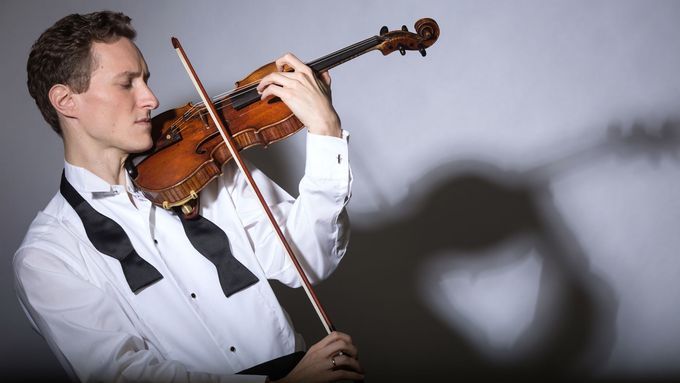
Under the baton of David Robertson, Josef Špaček will play, among other things, The Journey of a Soul by Leoš Janáček, which he has already recorded for Supraphon. Photo: Radovan Šubín | Video: Supraphon
Most importantly, take it easy
David Robertson was born in the mid-summer of 1958 in Santa Monica. As chief conductor, he led the Sydney Symphony Orchestra or St. Louis Symphony Orchestra, held the role of principal guest conductor of the BBC Symphony Orchestra, and as a protégé of Pierre Boulez, became the first American music director of the famous Ensemble Intercontemporain, a French ensemble specializing in contemporary work.
He himself speaks in interviews about the need to establish the most pleasant conditions during the exams. “People in Europe say I have a very California attitude,” smiles Robertson. “There is a lot of tension and stress involved in playing music at a really high level. I often feel that a three-hour rehearsal can be like an extended tennis match between Federer and Nadal. Everyone is trying to do things perfectly, correctly, and that can be very exhausting,” says the conductor .
Therefore, during rehearsals, they try to eliminate any situations that could hinder the players’ ability to fully concentrate. Which for him means mainly keeping everyone as calm as possible.
He believes that in work as in life it is better to focus on the solution rather than defining the problem. So instead of telling the musicians during rehearsals that they are playing a given passage too slowly and pointing out flaws, he guides them by wanting more momentum from them. “There are a thousand ways to talk about the problem you’re focusing on. But let’s start working on what’s right instead, and let’s not think about the best way to name things that don’t work,” the conductor thinks. He currently conducts the world’s best orchestras, including the Amsterdam Concertgebouw and the New York Philharmonic, to which he returns in the current season.
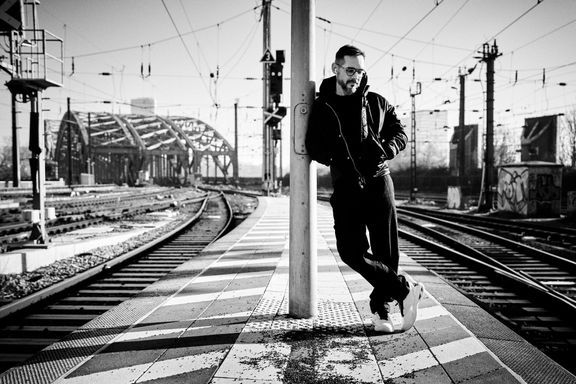
Next year, Miroslav Srnka will give the world premiere of his new opera Voice Killer at the Austrian Musiktheater an der Wien. | Photo: Kaupo Kikkas
Extreme closeness
Superorganisms is not the only composition by Miroslav Srnka in this year’s Prague Spring. Every year, the festival also includes an international competition for young instrumentalists from all over the world, and its repertoire usually includes a new composition written for this occasion.
This year, there is a competition in the fields of French horn and violin. And Miroslav Srnka prepared a contemporary music excursion for young violinists. He called him Apprivoise‑moi, translated as Appease me. “It’s a short composition, but packed with special techniques and sounds. Many of the contestants must have already guessed that the title comes from probably the most famous thin French book. It has a breathtaking chapter number 21 with a fox, one of the most surprising descriptions of the desire for mutual closeness,” he mentions The doe of the classic The Little Prince by the writer Antoine de Saint‑Exupéry.
While it was about bringing the pilot closer to the fox, the composition works with the extreme closeness of the violinist and their instrument. Here, the composer explores the edges of instrumental possibilities. “These are quiet sounds that usually only the player can hear. The highest positions, where the tone turns into noise. Vibrating sounds by tremoloing both hands independently,” reflects Miroslav Srnka.
He is wary of writing compulsory compositions for competitions, because young participants have a lot at stake professionally. At the same time, as an author, he always wants to take risks, never to write what has already been proven. The advantage is that the violin was also the first instrument he learned to play, so he could try out all the peculiarities himself. “But I also had two extremely skilled and experienced violinists as incognito advisors. It is an unrepeatable experience to have a composition premiered many times in a row during a single competition day. No two will play it the same way. I have my fingers crossed for the contestants,” wishes Srnka.
He dedicated the five-minute Apprivoise‑moi to the memory of the exceptional creator, the Finnish composer Kaiji Saaria, who died last June. She lived to be 70 years old. “She was fascinating with her introverted power, with which she showed the intimate and deep side of contemporary music sound,” recalls the Czech author. They met twenty years ago in Paris, after which Saariaho wrote him some recommendations that every budding artist needs, invited him to a festival in Porvoo, Finland and also introduced him to some great musicians. For example, with the conductor Susanna Mälkki, who later presented two Srnka premieres with the Los Angeles Philharmonic and the Bavarian Radio Symphony Orchestra.
“Shortly before Kaija’s death, my student Federico Perotti won The Kaija Saariaho International Organ Composition Competition with his organ concerto. His concerto will be premiered this year on a new huge instrument built for Helsinki’s Musiikkitalo hall thanks to the support of Kaija Saariaho, who once wanted to become an organist. The circle that’s how he concluded when I was writing Apprivoise‑moi,” adds Miroslav Srnka.
Concert
(Organized by the Prague Spring Festival)
David Robertson & the Czech Philharmonic
Town Hall, June 3
Tags: choice #21st century music famous conductor fly Czech Philharmonic
-
